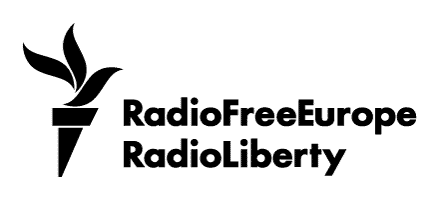The legislation seeks to impose curbs on the Internet -- the last outpost of uncensored information and free exchange of ideas in one of the world's most authoritarian countries.
The bill, which was submitted by the government on June 10, was endorsed in its first reading by the Chamber of Representatives within a week. The speed with which it was rushed through the lower house reportedly surprised even some legislators well accustomed to rubber-stamping documents coming from the presidential administration or government. "But this has already become a tradition," Belapan quoted one lawmaker as saying after the vote. "There's no help for it."
The bill was supported by 93 lawmakers in the 110-seat legislature and opposed by one. It proved impossible for journalists to determine the identity of the rogue legislator following the secret ballot. Colleagues speculated that the dissenting vote might have been the result of someone pushing the wrong button on the voting machine.
The nonstate Association of Belarusian Journalists (BAZh), which desperately seeks to prevent the independent media sphere in Belarus from shrinking to naught, sent individual letters to all the lawmakers last week, asking them to discuss the media bill jointly and in public; but to no avail. Additionally, on June 16, BAZh sent a 17-page commentary on the bill with reservations and remarks to the Chamber of Representatives. There was no positive response to this move either.
BAZh Chairwoman Zhanna Litvina tells RFE/RL's Belarus Service that the authorities are deaf to any dissenting views regarding this particular piece of legislation. The authorities' "goal is understandable, clear, and precise -- to pass the law as soon as possible," Litvina says. "Therefore the existence of a different opinion or view is not needed by anyone."
BAZh lawyer Andrey Bastunets explains to RFE/RL that the new media bill introduces several groups of new restrictions regarding the operation of the media in Belarus in comparison with the current media law, which has been in force since 1995.
First, media outlets are required to reregister with the Information Ministry every time they change their legal address.
Second, the bill makes it possible for the authorities to shut down a media outlet following just one warning issued by the Information Ministry or a prosecutor (the 1995 media law provides for such a move after two warnings).
Third, the bill defines "media" as forms of the distribution of information in print, online, and in electronic formats. It also authorizes the government to issue regulations regarding the registration of online media outlets and their operation. The BAZh is afraid that the government might introduce state registration for all online sites and block access to those that fail to obtain such a license.
Natallya Pyatkevich, deputy head of the presidential administration, argued on June 16 that the new media law would not entail a government directive requiring the compulsory registration of online sites in Belarus.
However, Liliya Ananich, first deputy information minister, said in May that her ministry favored a registration requirement for online media outlets, as "there is a problem of disinformation flows" from abroad. According to Ananich, such a problem has been successfully tackled by China, "which has cut off access to its territory for such sites."
Yury Ziser, the founder of the popular Belarusian online portal tut.by, predicted on June 17 that the requirement to obtain a state license for online information resources would lead to a mass migration abroad not only of opposition-minded Belarusian websites but also of those far outside politics.
The new media bill also includes such vague and ambiguous provisions as making media outlets liable to punishment for "distributing false information that can cause damage to state or public interests" or for "distorting generally established language standards."
According to Alyaksandr Starykevich, editor of the online publication "Salidarnasts," it is too early to predict whether the new media regulations might kill the Belarusian Internet completely or leave some free territories intact. But he, too, had no illusions as to the direction of the official media policy in Belarus.
"Our practice is worse than any laws. For the time being, it is hard to see what threats are coming with this bill, because it includes a lot of ambiguities regarding not only individual provisions and terms but also their interpretation," Starykevich says. "But it is clearly understandable that the Belarusian authorities are doing this solely for toughening control over the press."
"You can expect the worst," President Alyaksandr Lukashenka said in May, in response to a Reuters question about whether he would run for the presidency in 2011. As testified by Belarus's modern history, the worst in Belarus has usually been preceded by bad and worse. This case appears to be no different.
RFE/RL Belarus, Ukraine, And Moldova Report

SUBSCRIBE For weekly news and analysis on Belarus, Ukraine, and Moldova by e-mail, subscribe to "RFE/RL Belarus, Ukraine, And Moldova Report."




